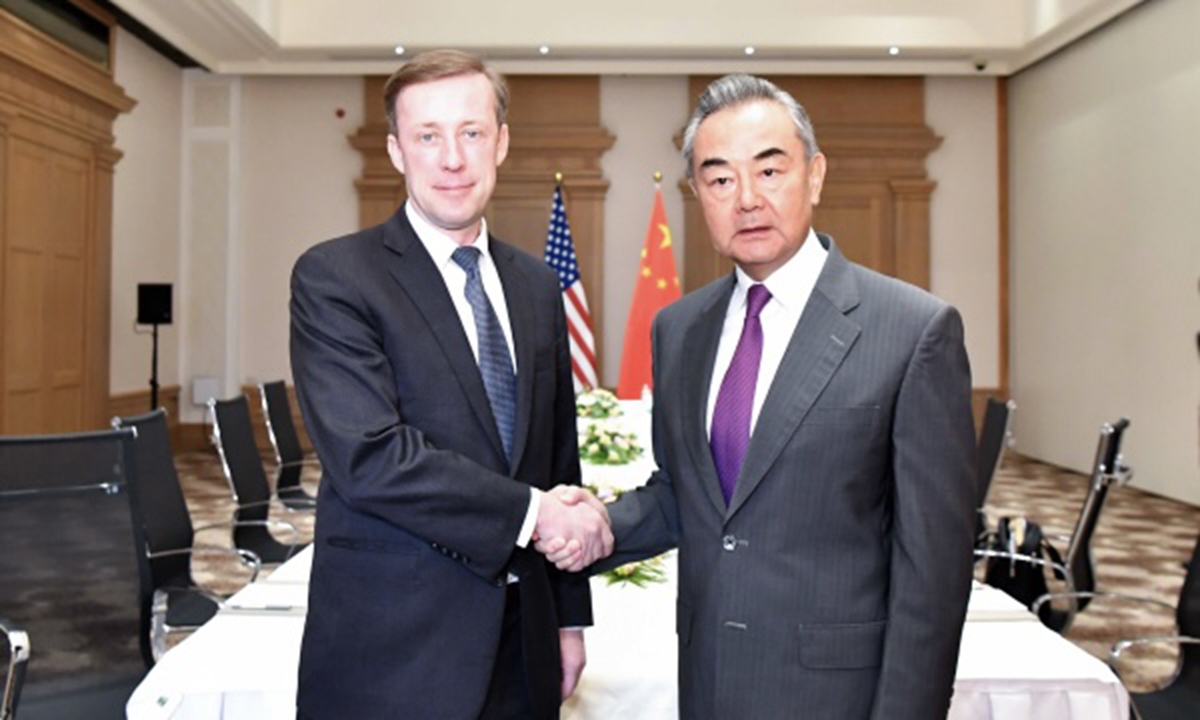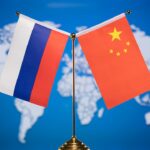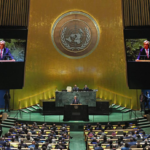Momentum on high-level engagement between the US and China is being maintained as senior Chinese and US officials held multiple rounds of meetings in Malta over the weekend, serving as candid, substantive and constructive strategic communication on stabilizing and improving bilateral relations. Some experts believed that the latest interaction opens possibilities for future interactions between the heads of state of the two countries after Washington made some tactical adjustments in engaging with China by showing some positive gesture and enhancing communication.
Wang Yi, director of the Office of the Foreign Affairs Commission of the Communist Party of China (CPC) Central Committee, met with US National Security Advisor Jake Sullivan, on Saturday and Sunday, agreeing to maintain high-level exchanges and hold consultations on Asia-Pacific affairs, maritime affairs as well as foreign policy.
The latest rounds of talks between Wang and Sullivan were held after a number of senior US diplomats and officials concluded their trip to China. These include a trip by US Secretary of State Antony Blinken in June, US Special Climate Envoy John Kerry’s trip to Beijing and a four-day trip by US Treasury Secretary Janet Yellen in July as well as US Commerce Secretary Gina Raimondo’s visit in late August. Some experts said that the Wang-Sullivan talks served to summarize the results of the high-level engagement between the two countries in recent months, raising questions about which direction the two countries are heading in.
According to senior officials from the Chinese Foreign Ministry who participated in the meeting, the two sides held multiple discussions on US-China relations, the Taiwan question, the Asia-Pacific situation, and the Ukraine crisis for over 12 hours. The question that took up the most time was Taiwan.
Although some US media hinted that the latest talks between the senior US and Chinese officials aim to “make sure” the leaders meet at the upcoming APEC summit in November, Chinese experts said this could be a major topic of discussion but the two sides are still in the process of communication, without making any final decision. Some experts believed that the US has not created many positive conditions or an atmosphere for the possible meeting of the two top leaders.
While the fundamental aspect of the US policy toward China remains unchanged, there have been some tactical adjustments in recent months, for example, enhancing communication and dialogue, easing tensions, showing gestures to improve relations, but there have been few “tangible results” from the high-level visits of the US officials to China, “on which the US has much more to do,” experts noted.
Cautiously optimistic
The talks between Wang and Sullivan were frank, substantive, and constructive. Both parties agreed to continue implementing the important consensus reached at the Bali summit in Indonesia in 2022 between the leaders of the two countries, maintaining high-level interactions, and stabilizing and improving US-China relations, an official from the foreign ministry told the Global Times on Monday.
The official indicated that both sides agreed that China and the US would soon hold consultations on Asia-Pacific affairs, maritime affairs, and foreign policy. They also explored dialogue in the field of artificial intelligence and further supporting and facilitating personnel exchanges between the two countries.
“The wording of the readouts from both sides shows their restrained attitude. From June to August, the two sides have concluded a series of high-level communications on which they need to summarize and talk about what’s next,” Lü Xiang, research fellow at the Chinese Academy of Social Sciences, told the Global Times on Monday.
The two sides also discussed the need to re-establish military-to-military dialogue between the US and China, a senior Biden official was quoted as saying in a CNN report following the weekend meeting.
Also, Gen. Mark Milley, chairman of the Joint Chiefs of Staff, told “CBS News Sunday Morning” on Sunday that the Chinese balloon – hype on which as a so-called spy balloon severely damaged mutual trust – was not spying.
“Milley’s clarification serves as a ‘wake-up’ call to the unhealthy and hawkish environment in the US military toward China, which could also pave the way for future military-to-military communication,” Li Haidong, a professor at the China Foreign Affairs University, told the Global Times on Monday.
Besides the US military, the US Congress, which is usually considered a base camp for anti-China hawks, also showed willingness to engage with China recently. US Senate Majority Leader Chuck Schumer plans to lead a bipartisan congressional delegation to China, Japan and South Korea soon, Reuters reported on September 12, citing an aide to Schumer.
The China visit would be a high-profile trip by Schumer, a Democrat who has repeatedly urged the US to take a harder line on China and will follow visits by a series of Biden administration officials, according to the media report.
“Although Schumer cannot be seen a friend of China, he still belongs to a relatively rational faction within the US Congress. If he can lead a congressional delegation to China to better understand China’s position and attitude, it would be a positive development,” Lü said.
However, no significant and tangible results were realized following the latest series of high-level interactions, despite the unprecedented frequency of visits by US senior officials, and whether the US is willing to bring about those results remains to be seen, he added.
What’s next
When asked about whether the Chinese leader will attend the APEC summit in November in the US, Chinese Foreign Ministry Spokesperson Mao Ning said on Monday that China attaches great importance to the role of APEC as a significant multilateral economic cooperation mechanism.
China will stand ready to work with other parties for a fruitful APEC summit. We will release information about China’s participation when we have it, Mao said.
As the two sides agreed to continue maintaining high-level exchanges, this “gives us much room for imagination,” Wu Xinbo, director of the Center for American Studies at Fudan University, told the Global Times on Monday.
But there has been no clear decision yet and the two sides are still in the process of communication. China believes that the US has not created many positive conditions or an atmosphere for a possible leaders’ meeting, Wu said.
Some experts also pointed out that it’s important for the two major countries to discuss their own positions amid the changing international situation and manage divergences in a responsible way. On this basis, the US has to make more concrete moves to demonstrate its responsible attitude in handling its relations with China, which may make it more likely for the leaders to meet.













